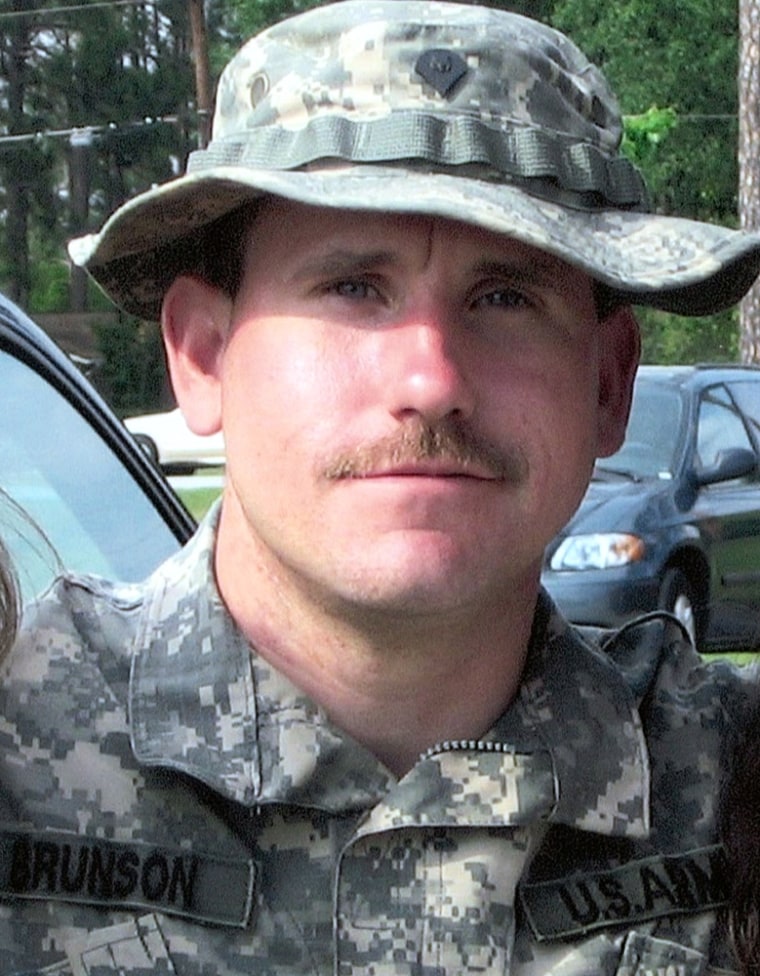Joni Bennett had just left the home of a family mourning one of four Georgia National Guardsmen killed by a roadside bomb in Iraq when her cell phone rang with more grim news of shocking symmetry.
Four more deployed members of the 48th Infantry Brigade had died in a similar explosion Saturday, six days after the Georgia Guard suffered its first combat casualties since World War II.
“The greatest stress I’ve had over these last eight days is I can’t be in eight places at once,” said Bennett of Brunswick, Ga., family support coordinator for the 4,300-troop brigade. “It’s agonizing to express to families I wanted to be there sooner, but I couldn’t.”
Just two months after the 48th Brigade arrived in Iraq, the pair of fatal bombings in the past week have already made the brigade’s yearlong tour one of the deadliest deployments for U.S. citizen-soldiers in Iraq.
Some families on the homefront reacted to the latest explosion with stunned disbelief. Brigade spouse Wendy Brown of Stockbridge said she first thought she was hearing a repeat of last week’s news.
“Reality sets in that war is not a business trip,” said Brown, whose husband, Spc. Sean Brown, has been home on rest leave. “It’s been easier taking the news with him at home. When I got the e-mail, he was home and it saddened him terribly. But we had each other to lean on.”
Sean Brown, 31, said he’s been keeping in touch with his unit, the 248th Military Intelligence Company, by phone and praying with his wife before dinner each night for the soldiers killed and their families.
“It leaves you with a real empty feeling, knowing you’re not there,” he said. “My mom and dad really wish I could stay and not go back. My wife really wishes I didn’t have to go back. But I’m not helping my team if I’m not there.”
Identities of the four soldiers killed Saturday had not been released Monday. Jim Driscoll, a spokesman for the Georgia National Guard, confirmed all four victims were from Georgia, just like the first bombing.
The 48th Brigade includes about 2,700 soldiers from across Georgia, augmented by about 1,600 troops from Alabama, Illinois, Missouri, Maryland, Rhode Island and Puerto Rico.
Brig. Gen. Stewart Rodeheaver, the 48th Brigade commander, called the deaths “a very, very devastating event” during a round of interviews Monday conducted via satellite with Georgia television stations. “But the morale of the soldiers is very, very high,” Rodeheaver told WTOC-TV in Savannah. “And what this has done is to just consolidate the resolve to do the mission properly, and to do it right.”
Gov. Sonny Perdue offered his condolences in a statement and urged Georgians to “pray for the protection of our soldiers and for their safe return when their mission is complete.”
More than 260 National Guard troops have died in the war on terrorism since Sept. 11, 2001, Lt. Gen. Steven Blum, commander of U.S. National Guard forces, said last month. More than 90 percent have died in Iraq.
The deadliest single attack on National Guard troops in Iraq came Jan. 6 when a bomb killed six members of Louisiana’s 256th Infantry Brigade. Two more 256th soldiers died in a similar blast four days later.
In Georgia, Susan Babot, of Statesboro, has both her 45-year-old husband, Master Sgt. Bob Babot, and her 22-year-old son, Spc. Bryan Babot, serving in Iraq with the 48th Brigade.
'Extremely scary'
“We’re intensely proud of them, but it’s been extremely scary here since they left,” Babot said. “This last week just seems to bring home the reality of war — we could lose them at any moment.”
Bennett, the 48th Brigade’s family support coordinator, said she considers it an honor to personally visit the families of each of the brigade’s fallen soldiers. She’s been traveling for the past five days and still has several to meet.
While her husband, Maj. Charles Bennett, remains deployed, Bennett said she’s found comfort in her Christian faith and two teddy bears her husband sent her from Iraq.
And while Bennett tries to stay strong for the families she consoles, she also cries in the few spare moments she has to herself.
“Most of the time I’m able to shed my tears in private,” she said. “But you can bet your bottom dollar, they flow and flow freely.”
